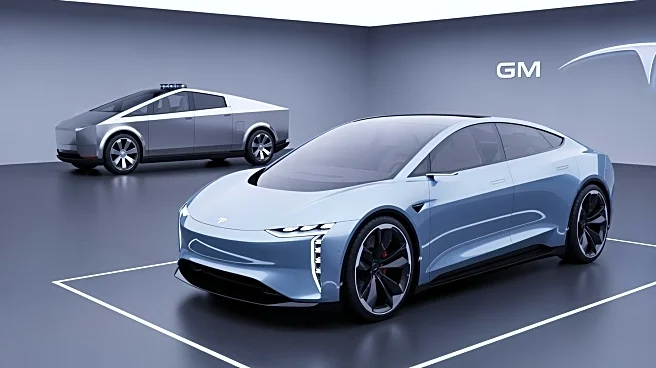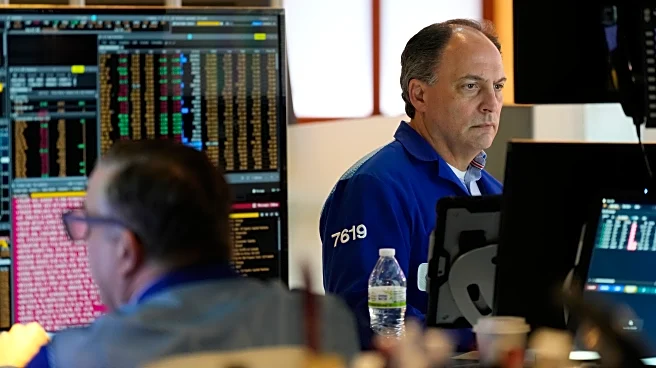What's Happening?
General Motors (GM) is planning to introduce a family of affordable electric vehicles (EVs) following the revival of the Bolt, which is priced under $30,000. This initiative is part of GM's strategy to compete
with low-cost EVs from China, as stated by GM President Mark Reuss. The company is focusing on enhancing its Ultium platform and is exploring new battery technologies, including lithium manganese-rich (LMR) batteries, with plans to release its first LMR-based EV model in 2028 in partnership with LG. Meanwhile, Tesla is taking a different approach by introducing the Cybercab, a vehicle optimized for full autonomy without a steering wheel or pedals. Tesla CEO Elon Musk announced that the Cybercab will begin production in the second quarter of next year, aiming to minimize operational costs per mile.
Why It's Important?
The contrasting strategies of GM and Tesla highlight the evolving landscape of the EV market. GM's focus on affordable EVs could make electric vehicles more accessible to a broader audience, potentially increasing market penetration and challenging competitors. This move could also stimulate competition among automakers to offer cost-effective EV solutions. On the other hand, Tesla's emphasis on autonomous vehicles with the Cybercab represents a significant shift towards self-driving technology, which could redefine transportation and mobility. If successful, Tesla's strategy could lead to a new era of autonomous ride-sharing services, impacting traditional car ownership models and urban transportation systems.
What's Next?
GM's rollout of affordable EVs is expected to intensify competition in the EV market, particularly against Chinese manufacturers known for low-cost models. The success of GM's strategy will depend on its ability to deliver on cost and performance promises. For Tesla, the launch of the Cybercab will be a critical test of consumer acceptance of fully autonomous vehicles. The company's ability to scale production and address regulatory challenges will be crucial. Both companies' strategies will likely influence industry trends and regulatory policies related to EVs and autonomous vehicles.










